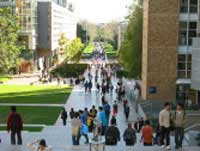|
||||||||||||||||||||||||||||||||||||||||||||||||
| Advanced Metaphysics and Epistemology - ARTS3364 | ||||||||||||||||||||||||||||||||||||||||||||||||

Description
Subject Area: Philosophy Module: "Contemporary Metaphysics" This module concerns one of philosophy's core areas — metaphysics. The aim of the module is to give students an awareness of some historically and philosophically important ideas and ways of thinking, along with an increased ability to engage critically and imaginatively with those ideas and those ways of thinking. Metaphysics is the philosophical study of what it is for something to exist — and of what fundamental kinds of thing do and can exist. And so we will consider some possible fundamental categories of being -- such as actuality, possibility, freedom, determinism, agency, identity, existence. Module: "Contemporary Epistemology" (Semester 1, 2011) This module concerns one of philosophy's core areas — epistemology. The aim of the module is to give students an awareness of some historically and philosophically important ideas and ways of thinking, along with an increased ability to engage critically and imaginatively with those ideas and those ways of thinking. Epistemology is the philosophical study of the nature and extent of knowledge. And so we will consider some theories of knowledge and its possible constituents, along with philosophical challenges to our actually -- or even possibly -- having knowledge or its constituents. What do we know? How do we know? Do we know at all? Indeed, are we even rational beings? |
||||||||||||||||||||||||||||||||||||||||||||||||


